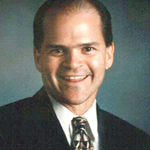Poor Grades? Vision Therapy Can Help
With the school year coming to a close, some families are facing a disappointing reality – their child’s performance doesn’t match his potential.
The signs have been present. Poor grades, homework struggles, even behavior problems in some cases.
Dr. Rick Graebe, a behavioral optometrist in Versailles, has treated children like this for more than two decades.
“When bright kids aren’t showing how bright they are, Vision Therapy might be a promising option,” Dr. Graebe said.
Vision Therapy, a kind of physical therapy for the eyes, brain and body, is neurocognitive training that creates new, permanent pathways in the brain that provide life-long benefits for the patient.
Vision Therapy treats the entire visual system. Often, a child has perfect 20/20 eyesight but is working with an inefficient visual system.
This program treats dysfunctions with visual efficiency, visual processing and sensory integration.
Visual efficiency dysfunction is the inability for the eyes to focus and to track across a line together.
This often results in reading problems because a child working extra hard just to follow along the line of a page has poor comprehension and loses interest in reading.
Visual processing dysfunction deals with visual memory and the brain’s ability to process what the visual system sees. A person with this dysfunction may have trouble forming a mental picture of the words he has just read.
Consider a person who doesn’t speak French reading a French story. Although he can see the words perfectly, the brain can’t process or understand what was read.
Sensory integration dysfunction is the inability of the senses to work in harmony.
Along with reading issues, this may also cause clumsiness and over sensitivity to high stimulation settings.
Vision Therapy addresses these issues in a 30-week or shorter program that consists of non-academic, fun games that use prisms, lenses, balance beams and even a trampoline.
The walls of Dr. Graebe’s office are covered with testimonial letters from families whose children have benefited from Vision Therapy.
“This is what I’m here for. I love it,” Dr. Graebe said.
“If we can help make a person’s life easier, that’s very rewarding.
“Reading is so important in our world. If you become a good reader, you can learn anything.”

